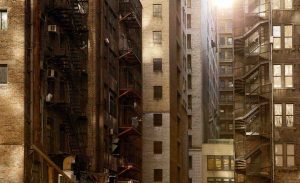 Whether you are a new or experienced renter, you may not be clear on all of California’s laws regarding security deposits. You may have a gut feeling regarding what your landlord can and cannot do in regard to the deposit, but you may not be sure enough to speak up or enforce your rights. Your gut feeling may also not line up with state and local law. If you are a California tenant, be sure you understand your and your landlord’s rights in regard to security deposits.
Whether you are a new or experienced renter, you may not be clear on all of California’s laws regarding security deposits. You may have a gut feeling regarding what your landlord can and cannot do in regard to the deposit, but you may not be sure enough to speak up or enforce your rights. Your gut feeling may also not line up with state and local law. If you are a California tenant, be sure you understand your and your landlord’s rights in regard to security deposits.
What is a Security Deposit?
A security deposit is an upfront fee tenants pay to landlords in the case of non-payment or property damage caused by tenants or their guests. It is not rent. Under California law, landlords are entitled to ask for a security deposit upon move in and to use the deposit in the future for:
- Any unpaid rent,
- Cleaning the apartment when the tenant moves out,
- Repairing damages caused by the tenant except damages that are the result of normal wear and tear, and
- If stated in the lease, repairing or replacing furnishings other than those lost due to normal wear and tear.
How Much a Landlord May Charge
California limits how much landlords can demand for a security deposit. For any non-furnished residential property, landlords can require a deposit up to two times the rent. If the monthly rent for your apartment is $1,500, then your deposit may be up to $3,000. If you are renting a furnished residential unit, then the deposit may be up to three times the monthly rent. For the previous example, it could be $4,500.
Your landlord does not have the right to increase your security deposit over time. If you live in San Francisco and your landlord tries to raise the deposit, this be an unlawful rent increase. Contact a lawyer right away.
Security Deposit Interest
San Francisco’s rental laws require that landlords keep security deposits in interest-bearing accounts and then pay you the accumulated interest every year.
Refundable v. Non-Refundable Deposits
Security deposits are refundable. This means you may be entitled to all or a portion of the deposit back at the end of your lease. California does not allow landlords to make any part of the security deposit non-refundable.
Getting Your Deposit Back
Landlords are not allowed to simply keep security deposits. They are intended to be used properly or returned to the tenant. That is why California states landlords have 21 days to either:
- Return the entire deposit to the tenant, or
- Provide in person or mail to the tenant a written explanation of why some or all of the entire security deposit was used, including an itemized list of the deductions. If there is any remainder, this should be returned to the tenant within the same 21-day period.
Landlords have the right to keep portions of the security deposit used to cover unpaid rent and damages. These damages are those above and beyond normal wear and tear. Landlords cannot keep portions of your security deposit for painting or new carpet. They also cannot use the deposit to repair issues that existed before the current tenant moved in.
Has Your Landlord Unlawfully Kept Your Deposit?
If you do not receive your security deposit back or an itemized list of the charges and the remainder within 21 days, then your landlord loses the right to keep the deposit at all. You can demand your entire deposit be returned to you. However, this can be difficult to pursue or enforce.
For help in dealing with a security deposit issue, contact a San Francisco tenants’ rights attorney of Brod Law Firm at (800) 427-7020.
(image courtesy of Todd Quackenbush)
 San Francisco Injury Lawyer Blog
San Francisco Injury Lawyer Blog

